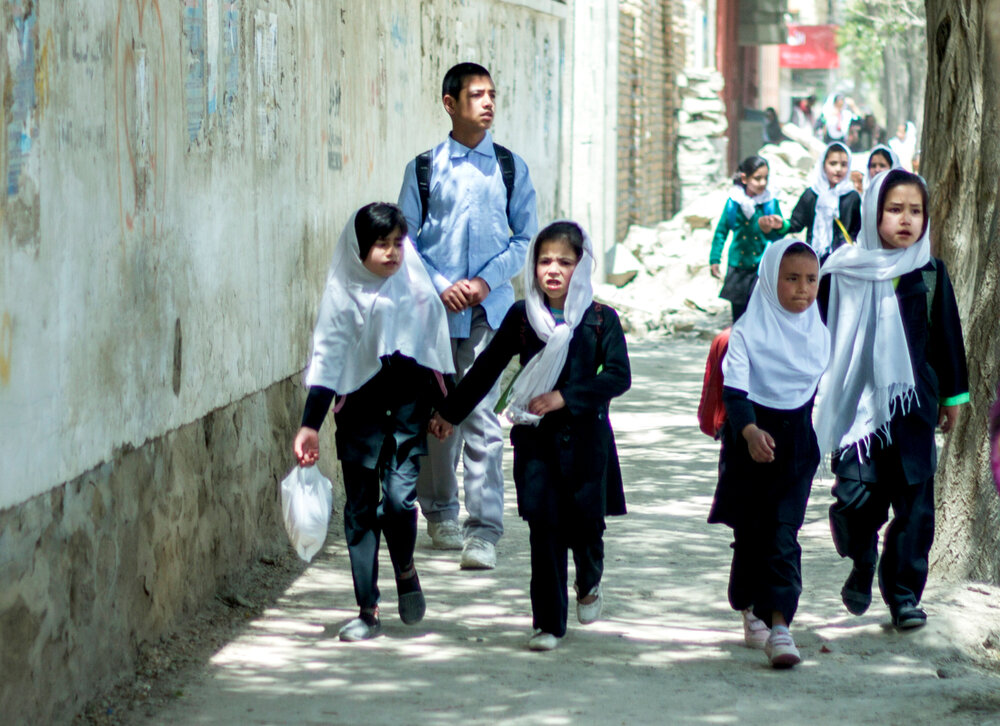A Matter of Human Rights: Two Philanthropic Efforts to Support the People of Afghanistan
/Jose_Matheus/shutterstock
The humanitarian crisis in Afghanistan isn’t new. Myriad relief organizations have been deeply engaged in supporting large swathes of its citizens for decades. In a country of nearly 40 million, almost half that number require assistance for basics like clean water and education, a figure the International Rescue Committee (IRC) said has doubled in since 2020. A full 75% of that population are women and girls.
The country has also long put its citizens in the path of violence and on the road to displacement. Civilian casualties reached record levels this year, and roughly a half-million people had already sought refuge outside the country. Now, a stunningly swift regime change has upped the danger level even further, particularly for citizens doing the work of advancing equality and human rights.
Philanthropy is unlikely to meet the level of support that rightly exists at the state level, and years of progress will be severely challenged by any reductions in support from the issue’s single largest contributor, the United States. Amid calls to step up further, public and private funding from the U.S. already accounted for half of $450 million in aid directed to Afghanistan by July, part of a U.N. appeal for humanitarian assistance.
But philanthropy is deeply invested in advancing human rights around the globe. At last count, the area drew investments from more than 800 funders, who collectively supported nearly 12,888 organizations to the tune of $3.7 billion.
Here are two $10 million initiatives aimed at supporting people caught in the crossfire at a particularly critical juncture for Afghanistan—one fully funded by a leading human rights supporter, and one mounted by a leading relief agency.
Open Society Foundations
The largest fully funded response has come from the Open Society Foundations, which launched a $10 million emergency fund shortly before the Taliban overtook Kabul. The aim is to expand immediate protections for Afghan citizens, especially journalists and those engaged in advancing human rights and women’s rights.
The Afghanistan Emergency Humanitarian Fund supports pathways to temporary refuge in the U.S. through humanitarian parole programs, international relief agencies that are assisting Afghan citizens during regime change, and other humanitarian relief efforts for the displaced.
OSF has been working in country on issues of human rights, culture and freedom of expression for 20 years. While encouraging other philanthropies to engage, OSF President Mark Malloch-Brown stressed steadfast support in perilous times. “We remain deeply committed to Afghans and their effort to help the country advance toward a more open society,” he said.
According to Malloch-Brown, the response has been robust. “Our announcement was met with strong interest from affected communities and organizations seeking funds to support the protection and safety of Afghans,” he said. “I've been deeply touched by the outpouring of support from the philanthropic community, as contributions come in both to our fund and to aligned coordinated efforts. But the demand far outpaces the existing funding, so I urge others to do what they can to help address this urgent humanitarian crisis."
International Rescue Committee (IRC)
The International Rescue Committee has been working in Afghanistan since 1988, in “thousands of villages across nine provinces,” as it puts it. The current crisis is hitting home. Nearly 100% of the IRC’s in-country employees are Afghans.
The IRC established a $10 million emergency appeal to continue providing assistance and protection for Afghans during the shift in power, including emergency cash assistance for civilians in dangerous situations in Kabul.
Among the first to answer the call were Facebook’s Chief Operating Officer Sheryl Sandberg and her fiancé Tom Bernthal, who committed $1 million. Sandberg also launched a Facebook fundraiser that has already exceeded its goal of $55,000.
Other relief organizations like CARE have launched appeals of their own. The organization has been on the ground in Afghanistan since 1961. After suspending activities in 1979, it resumed assistance from a base in Pakistan in 1989. Since 2002, it has been operating from a base in Kabul, focusing on three programs: empowering women and girls, boosting resilience and humanitarian action.
CARE’s humanitarian assistance fund aims to provide food and shelter to the 393,000 Afghans that are newly displaced.
Settling in
As refugees arrive stateside, look for U.S. donors to support philanthropic efforts that augment government self-sufficiency programs, which typically last 90 days. Organizations already helping Afghans settle in include Refugees Services of Texas and the Catholic Charities of the Diocese of Arlington.
On the corporate end, JPMorgan Chase made a total $1 million commitment to supporting service members, veterans and displaced Afghans.
The three organizations it’s working with to support military service are: Blue Star Families, Iraq and Afghanistan Veterans of America, and UK-based Combat Stress, which works in mental health.
JPMC is also supporting the resettlement of Afghans through the International Rescue Committee, and providing pro bono assistance from the firm’s legal team on relocation.
This story has been updated with new information.









